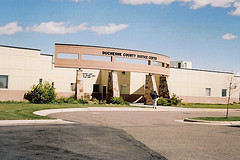The Importance of the Jury Trial and Voir Dire

The jury trial is a right over which many lives were lost in the founding of this country. It is a mechanism to protect individuals against an oppressive government. Think about how different things would be if an individual charged with a crime could then be tried by a government bureaucrat instead of a number of different individuals from his community. Juries can protect people from false allegations by the state. It is another check and balance on state power.
Juries, however, are not infallible. They are composed of people who have their own biases and prejudices. While it is impossible to remove those biases and prejudices from members of the jury, the law has developed to permit lawyers and judges to ask prospective jurors a series of questions to determine if any particular juror carries with him a preconceived notion that could interfere with is rendering a fair judgment in the case. This questioning process is called voir dire, which is a term loosely based on a Latin phrase which means to say the truth and which is conducted during the jury selection process.
Rules Governing the Voir Dire Process
Because voir dire only occurs in the trial court, the trial court judge has a lot of flexibility on how he runs the process. Nonetheless, there are several rules that the judge must follow. If the trial judge violates any of those rules his decision can be reviewed by an appellate court judge under an abuse of discretion standard. See Alcazar v. University of Utah Hosps. & Clinics, 188 P.3d 490.
As discussed in the recent State v. Alvarez case: Generally,the trial court is afforded broad discretion in conducting voir dire, but that discretion must be exercised in favor of allowing discovery of biases or prejudice in prospective jurors. The key inquiry is whether, considering the totality of the questioning, counsel was afforded an adequate opportunity to gain the information necessary to evaluate jurors. If the trial court’s decision to exclude the question about juror embarrassment substantially impaired Defendant’s right to the informed exercise of peremptory challenges, it is reversible error.
So the entire purpose of voir dire is to allow the lawyers to evaluate the prospective jurors and to do so in a way that allows the lawyers to be able to make informed conclusions about each prospective juror.




